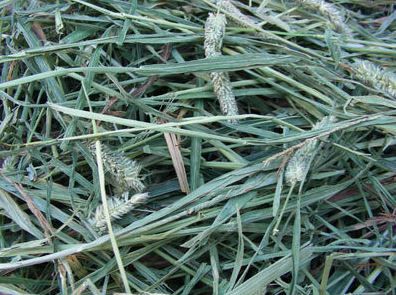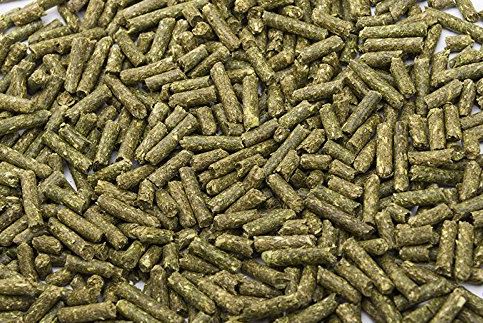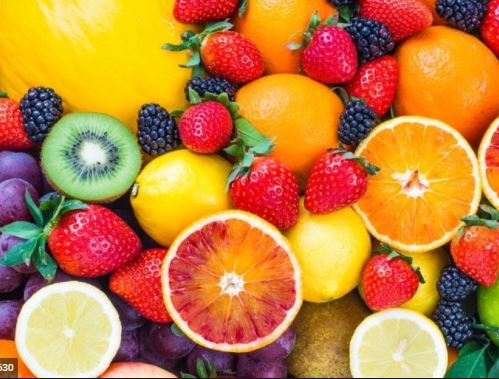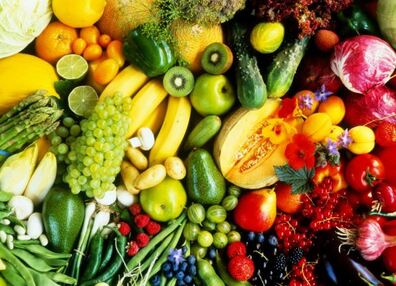|
Fortified PelletsPellets are most important in the younger stages of rabbit development because they are highly concentrated in nutrients, helping to ensure proper weight gain. A quality pelleted food should be high in fiber (18% minimum, while I prefer 20.5%) and nutritionally balanced. As a rabbit reaches maturity, however, pellets should make up less of the diet replaced with higher quantities of hay and vegetables. Overfeeding pellets in mature rabbits can lead to obesity and other medical conditions..
|
Feeding rabbits through their stages of development:
Like human beings, rabbits need to be fed differently at different stages of their growth to ensure healthy development, digestion, and weight. Throughout a rabbit's life, avoid any sudden changes in diet; new foods should always be introduced gradually. Remember to keep fresh clean water available at all times, too. Water bottles versus dishes are recommended.
Baby rabbits: A baby rabbit, or kit, feeds solely on its mother's milk for about the first three weeks. During the first few days, the milk contains high levels of antibodies that help protect the kit from disease. After three weeks, the kit will begin nibbling on alfalfa hay and pellets. By 7 weeks of age, baby rabbits can handle unlimited access to pellets and alfalfa hay in addition to mother's milk. Kits are usually weaned from their mother's milk by 8 weeks of age, depending on the breed (DO NOT FEED FRESH FRUITS AND VEGGIES AT THIS AGE AS IT COULD LEAD TO FATAL ENTERITIS).
Juveniles: Between weaning and 7 months of age, the young rabbit can have an unlimited amount of pellets and hay (Alfalfa hay is fine at this age). At 4 months of age, start introducing small amounts of vegetables into your rabbit's diet. Introduce one vegetable at a time. If any vegetable seems to cause digestive problems, avoid feeding it in the future.
Young adults: Young adult rabbits from age 7 months to 1 year should be introduced to timothy, grass hays, and/or oat hay, and it should be available all day long. The fiber in the hay is essential for their digestive systems to work properly. At this point, they will require little alfalfa hay, as well as fewer pellets. Alfalfa hay has more calories and calcium than rabbits need at this stage of development, and the high calorie content of pellets can also begin to cause weight problems. Instead of offering unlimited pellets, a good rule of thumb is 1/2 cup of pellets per 6 lbs. of body weight daily. To make up for the nutritional loss, you must increase your rabbit's intake of vegetables and hay. You can feed your rabbit some fruits during this stage, but because of calories, limit them to no more than 1-2 ounces per 6 pounds of body weight daily.
Mature adults: Mature adult rabbits should be fed unlimited timothy, grass hay, and oat hay. Once again, you should reduce the pellet portion of the diet. A standard guideline is 1/4 cup of pellets per 6 lbs. of body weight per day. Several servings of vegetables are required (2 cups per 6 pounds of body weight daily). Make sure to choose dark, leafy greens, and feed at least three different kinds daily. Iceberg or other light-colored varieties are NOT nutritious. Also, make sure you are offering dark yellow and orange vegetables. Treats, including fruits, must be fed sparingly.
Seniors: Senior rabbits over 6 years of age can be fed the same diet as mature adults if they do not have weight loss problems. You may need to increase pellet intake if your pet is not able to maintain his or her weight. Alfalfa can also be given to underweight rabbits, but only if calcium levels are normal. Annual blood workups are highly recommended for senior rabbits to determine the level of calcium and other components of the blood.
Like human beings, rabbits need to be fed differently at different stages of their growth to ensure healthy development, digestion, and weight. Throughout a rabbit's life, avoid any sudden changes in diet; new foods should always be introduced gradually. Remember to keep fresh clean water available at all times, too. Water bottles versus dishes are recommended.
Baby rabbits: A baby rabbit, or kit, feeds solely on its mother's milk for about the first three weeks. During the first few days, the milk contains high levels of antibodies that help protect the kit from disease. After three weeks, the kit will begin nibbling on alfalfa hay and pellets. By 7 weeks of age, baby rabbits can handle unlimited access to pellets and alfalfa hay in addition to mother's milk. Kits are usually weaned from their mother's milk by 8 weeks of age, depending on the breed (DO NOT FEED FRESH FRUITS AND VEGGIES AT THIS AGE AS IT COULD LEAD TO FATAL ENTERITIS).
Juveniles: Between weaning and 7 months of age, the young rabbit can have an unlimited amount of pellets and hay (Alfalfa hay is fine at this age). At 4 months of age, start introducing small amounts of vegetables into your rabbit's diet. Introduce one vegetable at a time. If any vegetable seems to cause digestive problems, avoid feeding it in the future.
Young adults: Young adult rabbits from age 7 months to 1 year should be introduced to timothy, grass hays, and/or oat hay, and it should be available all day long. The fiber in the hay is essential for their digestive systems to work properly. At this point, they will require little alfalfa hay, as well as fewer pellets. Alfalfa hay has more calories and calcium than rabbits need at this stage of development, and the high calorie content of pellets can also begin to cause weight problems. Instead of offering unlimited pellets, a good rule of thumb is 1/2 cup of pellets per 6 lbs. of body weight daily. To make up for the nutritional loss, you must increase your rabbit's intake of vegetables and hay. You can feed your rabbit some fruits during this stage, but because of calories, limit them to no more than 1-2 ounces per 6 pounds of body weight daily.
Mature adults: Mature adult rabbits should be fed unlimited timothy, grass hay, and oat hay. Once again, you should reduce the pellet portion of the diet. A standard guideline is 1/4 cup of pellets per 6 lbs. of body weight per day. Several servings of vegetables are required (2 cups per 6 pounds of body weight daily). Make sure to choose dark, leafy greens, and feed at least three different kinds daily. Iceberg or other light-colored varieties are NOT nutritious. Also, make sure you are offering dark yellow and orange vegetables. Treats, including fruits, must be fed sparingly.
Seniors: Senior rabbits over 6 years of age can be fed the same diet as mature adults if they do not have weight loss problems. You may need to increase pellet intake if your pet is not able to maintain his or her weight. Alfalfa can also be given to underweight rabbits, but only if calcium levels are normal. Annual blood workups are highly recommended for senior rabbits to determine the level of calcium and other components of the blood.




